electric infinites and cowabungaly yours at the end of the world are like rereading a field journal entry... ...from a hike where you feel like something important happened.
My copy of Ashley Cline’s electric infinities (Variant Literature, 2023) arrived in the mail and, before opening it, I placed an order for Cline’s cowabungaly yours at the end of the world (Gutslut Press, also 2023). I’d been waiting for more of Cline’s mysterious, nature trail plaque from a rogue forest ranger–esque poetry since her first chapbook, & watch how easily the jaw sings of god (Glass Poetry Press, 2021), and – wonderfully for my bookshelf, terrifyingly for my sense of my own productivity – saw that she had three chapbooks set to release in 2023. Truly how dare she. Both of these first two 2023 collections position themselves at the end of the world. Thus, we have to talk about the end of the world. The vibe here isn’t apocalyptic, as you might expect. Instead these are poems of solace and simple, grounded joys in a world that will never prioritize them. Here, the end of the world is where “i will place my head on the table / & i will simply leave it there, forever / perhaps, one day, a flower will grow”, where “everyone is disappearing/not literally, though maybe”, where “you watch the birds–swallows, you think, or maybe martins–who don’t think of nothing but the moment–who don’t think of not existing, at all”. Here, the end of the world is the end of a more youthful world full of potential, a world which never exactly existed. The end of the world from which Cline writes will not literally end just because any one individual has realized how imperiled it is, nor will it be saved by growing an appreciation of how improbable the world is in the first place. The end of the world is instead active, wherein “a story i write over & over & over –/again / i am choosing you fireproof” and where “you decide to be endless (to be birdsong) too”. electric infinities catalogs the end of the world, taking a library science approach to finding peace. “checklist for the end of the world” starts sensibly with “a healthy snack”, immediately dials it up to “money,/to burn: literally”, then spirals into “you will learn to see the/ash as/something beautiful, if not/a heaviness,/that you cannot place / like/rock sherbet, or/star signs, or/a sneaking suspicion/that this will all make sense, one day–”, still itemizing each line with a blank checkbox. cowabungaly yours, as suggested by the title, leans more towards the millennial dadaist side of the end of the world. “carbon dating, or Cher & Nikola Tesla walk into a bar (& there is no punchline)” shares that “the first time i heard “Skin Deep” / from Cher’s 1987 self-titled album / i thought she sang skin me / to the bone & i whispered / oh god, oh god – that’s what i want / to be made and undone by / the same edge that sips softly from our bodies”. cowabungaly yours studies pop music to ask what we’re even doing here living. But, the scientific approach remains. “how to fall into a supermassive black hole, or ode to the girl who stood on a maryland street & shouted ‘silver spring can suck two dicks’” presents a step-by-step process of cosmic and personal destruction: 1. as you approach the black hole, you will start to experience its strong, gravitational pull scott says thanks instead of goodbye / & it is somehow summer again Cline also playfully refutes that the poem could possibly be doing something so gauche as saying a difficult relationship is like being destroyed by a black hole, then teases the reader with the intentional fallacy anyway. The physics of a black hole are, on some level, as irrational as trying to reach a neat conclusion about what any of this means: 4. as you approach the event horizon, it will appear as though, to anyone watching, that you have frozen in place & this isn’t a metaphor / though, i suppose / if it were / it’d be a metaphor for how hollowed out & hungry our cheeks were / the summer of 2009–how we filled them / with the greatest hits of celine dion / & stuffed our bellies with the power of love / how your neighbor said / if you don’t fucking turn that shit off, i will / & we turned it all up cowabungaly yours is solely composed of previously published poems. I recently heard this scenario discussed on the poetry podcast Dead Darlings (one host of which, disclosure, is a friend of mine) in their review of the debut collection by Warsan Shire (who I do not know, just to be clear), published after becoming well known for her collaborations with Beyoncé (I don’t need to clarify I don’t know Beyoncé, right?). The hosts noted that some people were surprised to find they’d read all of the poems in prior publications, but that the collection had obviously been put together over a long period of time and “given that a lot of these pieces have had this other life, the fact that they all hang together as a really cohesive collection is a real testament to how good the work is.” I’m inclined to extend the same appreciation here; it’s satisfying to see a bunch of poems I’ve read before playing off each other with such energy. In contrast, it’s surprising to see that electric infinities largely abandons pop culture in favor of nature and similarly shifts its voice against anthropocentric answers. The observations in electric infinities are so in the moment, the speaker seems to almost wish they weren’t there imposing themselves. It never feels too granola about it, although it edges up against it sometimes. “the way the universe will end, scenario no. 3” (four other scenarios are in electric infinities; again, cataloging is the chosen field of study) suggests: this universe will balloon herself lonely & cold, one day / just like every woman carved into my ribs has done before / so ask me, instead about the late-afternoon sun so that i may tell you all the ways in which / she tricks the water ever more blue / & ask me, instead, about how she coaxes the gold from the cheeks of this coast But electric infinities’ thesis isn’t really “what if you just, like, paid attention to nature”. Although, like any act of ordering one’s findings and compiling knowledge, it can take a couple re-reads of these poems to figure out what the data is telling you. Cline’s voice – grateful, humorous, devastating – is compelling enough that, however mysterious her notes, you feel there’s a real secret within, worthy of study. “scenario no. 3” goes on to say “so that i might tell you”: how i wish to be gutted with hands / far more steady than mine until there are no more electric infinities / until the horse flies circle overhead & the horse flies buzz–they never stop buzzing– & death unquiets And speaking of the notes, an amusing highlight of both collections is the notes. Extensive notes and acknowledgments at the end of each chapbook source facts and inspirations from scientific articles and song lyrics. They’re delightfully detailed. Cline will explain a poem “borrows from–and deconstructs” a phrase from an article about Jupiter’s lightning, or that a line from a poem comes from a misread NPR tweet that nonetheless “i found relatable”, or that “the text found before [a] poem … is a summary of two articles”. One note just goes on an extended tangent explaining that the Johannes Kepler text cited by a poem resulted in his mother being put on trial for witchcraft and that Kepler spent the rest of his life adding footnotes to the text to dispel superstitious interpretation. The poetry already has plenty of notes – either as text before a poem or something more woven into them – and I love how the notes section just goes wild. This sort of thing is catnip for me, a person who spends more time reading and watching criticism and analyses of video games than actually playing video games. I’m drawn to how Cline’s poetry feels similarly obsessed with the evolution of any creative endeavor and is similarly ponderous about what it aims to do. You might be thinking this is quite a lot of review to spend talking about things that aren’t the poems; if so, you may not love these poems, which openly, citation-lovingly, find the process as fascinating as I do. This point might best be illustrated by the title of the poem “an erasure poem of bonnie tyler’s “total eclipse of the heart” in which i erase everything but “i fall apart i fall apart i fall apart i fall apart i fall apart i fall apart””, which, then, does not actually do this. Makes you wonder how anyone winds up anywhere. Harm Done is an act of community healing in a space decorated with a painstakingly curated knife collection.Michelle Wirth and Austin Brady’s Harm Done (self-published, 2022) is a collaborative effort featuring Wirth’s poetry, Brady’s poetry, sometimes poems by both Wirth and Brady, sometimes sets of call and response poems by one then the other, and sometimes something blurrier. The majority of the poetry is accompanied by artwork from one of the two as well, if not – in varying degrees – more experimentally part of the poem itself. Harm Done’s experimentalism is a highlight, owing in part to its publication as a zine – or rather as a digital zine... or rather as a PDF, complete with page 2 technical recommendations “for best experience.” In a way, even the collection’s medium poses a question of identity mirroring that of the poems’, which mull over and wring out – as described by Brady and Wirth – “the goopy experiences of gender and masculinity from our different perspectives” and “the injuries that result from our complex selves violently encountering gender norms”; existing is inextricable from defining, and have to do so where categories fall detrimentally short.
That violence is a common theme throughout Harm Done, but generally in a subversive manner drawn from horror or fantasy, and with a sense of humor cast over a great deal of this pain. Tenderness isn’t an uncommon theme in a queer reading of horror. As described by David Ly in the introduction to Queer Little Nightmares, these explorations “push back on the idea of monsters as fearsome” by “finding belonging when the world wants only to see us as monstrously other”. Fittingly, many of the poems in Harm Done are flavored less like body horror and more like body dark comedy, or, as outlined in “Rage Quit,” with a “set me off and watch the monster-/movie transformation into an/angry queer” B-movie type of violence that isn’t not comedic. “How to become a werewolf” asks “how do I get bitten by a/cryptid? Where do I sign up?”, while “stage suit” studies “how to distill via tubes &/erlenmeyer,/a drink to guzzle/to transform?/what potion do i need to push/(through sharp)/into flesh?” Outside of the fantastical, “I’m starting to smell like my dad” offers dark comedy without metaphor, grounded in the speaker’s real-world anxieties that “of course it’s not like T just makes you match / a generic template of male: / it activates / your own little nucleotide sequences / sequences passed down to you / from specific men” – even if finding peace remains somewhere in another liminal space: Smoke some cigarettes / drink cheap martini mix / to complete / the olfaction package / and give myself a hug / collarbone press until it hurts / and tell myself: / I’m here for you / and / you’ll get free of the people hurting you / someday As you may have gathered, the sense of humor in Harm Done tends to be very dry. “Getting Buff” feels like a gender-focused reimagining of Gwendolyn Brooks’ “We Real Cool.” It’s one of the collection’s more disciplined stream of consciousness–flavored poems, hitting like reps at the gym if what one were lifting was their gender presentation, blending the obvious (“I lift weights/I push plates/I eat raw chicken”) with the humorous (“I piss lite beer”) and the caustic (“I eat car battery/I cry at lunch”). “I fuck to cum” is the kind of line in a poem that seemingly hits with absolute artlessness but could probably turn more people onto the art of poetry if this was what they thought poetry at large asked them to “get.” I personally love a bit of straightforwardness cutting through the abstractions of poetry – I’m a dummy and I appreciate when a poet is ok just spelling it out for me. “male gaze fractures on a testosterone body” is one of Harm Done’s highlights in this regard, contrasting frustration with unwanted policing of one’s body (“joke’s gonna be on you fucks/when those tiddies you wanna/grope so bad are covered in/curly hairs. when these/wrists you wanna pull me over to you are/decorated with a dark lawn/that you call disgusting. this is/who i was the whole time”) with frustration of curating desirability (“but then the rare dicks i/don’t want soft? but the objects/of my gaze that i want to want/me. but what if what they want/isn’t my real body … will i still engorge you with a/voice crack and otterstripe down/my abdomen? the few of you/i’ve hand-picked. how cut can/my muscles get?”). A great deal of the language of Harm Done doesn’t allow itself this bluntness, and sometimes its stream of consciousness can veer into word salad, but there is generally a great deal of accessibility in here without promising easy answers that may not exist. Harm Done is about the questions and will often experiment with form to figure out how to ask them. Reviewing Harm Done requires discussing a number of elements that generally fall outside the definition of poetry. “The Curtains” – a sprawling poem about haircuts and gender norms – takes full advantage of the digital medium, changing the page dimensions to give the poem extreme verticality and still run off the page. Homophobic slurs are scratched out in heavy pen stroke. Some poems, including the aforementioned “Rage Quit,” are partially typeface, partially handwritten, creating more visible call and response that can appear anywhere on the page, and it’s fun to feel like you’ve discovered a poem written around another poem by a particularly devious previous owner of the book (especially when the handwritten speaker kicks off their exasperation with a playful “Hello! I’m here to rouse some rabble”). “Things I want to ask you about White Knighting” takes the form of a multi-page worksheet with questions (e.g. “Is emotional labor a form of white knighting”) and lines for answers, which are filled in with handwritten responses that are the non-direct answers one would expect of poetry (“When you are assigned weapon at birth, all care/feels like rebellion”). It also contains Harm Done’s most notable example of what is the text and what is the art: instead of a handwritten answer on one of the sets of worksheet lines, the lines instead twist into artwork of a wolf caught in a trap. While this example is inextricable from the poem, some of the art – a lot of it – can feel somewhat just there, marginalia that matches the mood but doesn’t feel essential. Not as much of it plays with the idea as I would have hoped for, but as far as criticism goes, I’m not too upset about wishing for more of a good thing. Purists of the written word might rankle at this, but what constitutes poetry is always shaped by technology, whether it be the margins on the page, the resources available to a translator, or, in the case of Harm Done, the low-barrier accessibility of the medium. Poetry often feels like it has to adapt to the eBook. I found myself rotating my iPad to read No’u Revilla’s Ask The Brindled (Milkweed Editions, 2022), which displays some poems based on your preferred font size (as many eBooks do) and others presented statically to retain the layout of the printed page. The eBook of Franny Choi’s The World Keeps Ending, and the World Goes On (Ecco, 2022) starts with a publisher’s note about the impossibility of retaining lines breaks as the author intends in a format where any given eReader has a different screen size, and notes using hanging indent as an imperfect but best available solution to this puzzle. What I find interesting about all of this – outside of the quality of the poetry – is how Harm Done uses the digital zine not just as for the medium’s accessibility, but finds opportunity for expression in it. It’s an especially appropriate structure for its subject matter of battering at rigid, pre-existing rules of form. It’s a welcome embrace. CatastroikaCharles Rammelkamp’s Catastroika is the best romp with Rasputin since the animated film Anastasia – with none of the sugar coating. Based on the true story of Aron Simanovich, Jewish secretary to the notorious monk who perished in Auschwitz, and his friendship with Rasputin’s daughter, Maria, Catastroika takes us on a thrilling kaleidoscopic ride through some of the most horrific and strangest parts of Russian history.
– Anne Eakin Moss, professor of Russian literature, Johns Hopkins University https://northofoxford.wordpress.com/2020/04/12/catastroika-by-charles-rammelkamp-available-for-pre-order/ Particularly Dangerous Situation by Beth Gordon Reviewed by Chris CollinsThe title of Beth Gordon’s collection sets you on your wary guard, then tightrope-walks you through the twenty-four poems. The name is apt for the whole collection, not least for the overriding themes and imagery of death and loss, but for the overwhelming and dizzying mysteries set up in every poem that throw you on edge. You know danger is lurking there, but you can’t see it yet. I read these poems over a series of weeks, as each one’s disparate images took time to digest. And as the images and phrases seeped disjointedly into my consciousness, a tension was created as I skirted around twenty-four particularly dangerous situations. The opening poem ‘Looking Away at Lambert Airport’ instantly sets the tone. Images of lives; distorted, damaged and corrupted are uncomfortable; humans are cruel, selfish and destructive. The title serves to remind us that in the face of suffering, most of us look away. When pain, loss or disease humiliate, it is easier to dehumanise the sufferer; the female twin subjects of the poem are rendered animalistic with talons and fur. We go back to our screens. Gordon’s vehement imagery is bitter and heart breaking. Visions of death emerge, bubble up in nearly every poem and subside. We are called upon to imagine ‘What my daughter’s hair felt like when she was dead;’ something is ‘riddled with bullets;’ we go to ‘ICU’ and ‘emergency rooms.’ Widows dance with ‘dead husbands,’ an Irish Pagan has been dying ‘since the moment she was born;’ there are tombstones, carcasses, skulls and rotten things. You find yourself racing haphazardly through each poem to search for an answer; staring myopically at each image and idea, as if in a dream, as each poem paints a piece more. Something awful has happened. What, and to whom? Structure and poetic form are adeptly manipulated. The poem ‘Loquacious’ makes giddy use of enjambment to emphasise the poem’s title of unfettered verbal outpouring, in a panicked or despairing confession that works to avoid the crux of the matter; emphasising the poem’s theme. This structure is employed frequently to create lists of images which overwhelm the reader. At times, this is heady and joyous – ‘Road Trip Redux,’ despite its negative view of travelling nevertheless creates the hedonism of random adventure. At other times like in ‘Christmas Eve,’ enjambment is used to heap up upon the reader lists of misery like an outpouring of loss. Questions are asked and not answered - left despairingly in the air - abandoned as hurt and lost things. The ghost returns at the end of ‘I Buried My Father Twice’ to ask: ‘Where are you, where did everybody go?’ These heartbreakingly lonely and sad questions are never answered for the ghost; nor the reader – who continually questions the identities of the elusive ‘you’ to whom Gordon addresses her poems. Along with death, disease is a key image. It is an inheritance; a curse that is always lurking and passed down like old furniture. In ‘April Sixteenth Two Thousand Seventeen’ Alzheimer’s haunts us; numerous cancers prowl through the pages. Genetic diseases like cystic fibrosis cripple the next generation as ‘nothing ever ripens’ in ‘Walking Catfish,’ while children are routinely ‘tumour-ridden’ in ‘One of Those Days.’ Contagions of rabies, diphtheria, smallpox, and Zika virus loom over us; comas are implied in the sleeping cocoons of ‘Goose Season’ where nature is out of kilter and migrating birds, despite their hereditary instinct, lose their way. In Gordon’s poetic world, the body is frail; and the mind, assuaged by the body’s weakness, is frailer still. ‘April Sixteenth Two Thousand Seventeen’ paints the impact of loss, the peanut butter eating, day-time red wine drinking, pyjama wearing kind of coping. The kind of coping that thinks ‘fuck it,’ in ‘I Tell You I Dreamed of Reading Poems in Phoenix’ and stops the car in the middle of the road. In a world of dead teenagers, dead daughters, dead brothers, dead fathers (sometimes twice), dead friends and their dead fathers and dead lovers, Gordon creates dark images of despair and escape. But escape is not always dark. With only a few words, Gordon evokes a sense of place and often it is the desert to which she returns to create a scape to escape. In coyote circles with ‘dust drenched winds’, ‘vultures’ and ‘stars,’ the open desert is before us as a clean and safe place where stasis ensures nothing is lost and nothing is complicated. Escape is also found in dreams, another recurring image. Non-sequitur images in Gordon’s poems are themselves dreamlike, men ride on unicycles and mutter about dialects; dreams and the dreamlike in her poems begin with greens and orange, plants and animals, then throw dangerous confessions or realisations around like exploding hijacked planes. Verbalised realisations that can destroy as much as the death and disease. There is kindness though. And hope. In ‘I Think You Live In Constant Fear of Tragedy,’ Gordon empowers the broken body and encourages it to ‘relearn the art of twist and bend,’ calling it to somersault and ‘promise your ribcage to the stars’ in the safe haven again of the desert with its coyotes and vultures. The body is disjointed, but lovely, spirited from the grotesque to the spiritual. ‘The Possibility of Journey is a Heavy Thing’ empathises with the failings of the weak body; be it old or traumatised, and gently encourages bravery; ‘the fear will dissipate.’ Gordon offers the possibility of continuance. Never more so than in the collection’s final poem ‘Alpha or Omega’ when she plays with the notions of who will be last and first to inherit. She brings together here, and in ‘Just One of Those Days’ strong, kind women who care for the sick, pick up the pieces, cook easy meals for others while foregoing lunch and ultimately will be the hope and saviour of us all. Beth Gordon’s collection Particularly Dangerous Situation is published by Clare Songbirds Publishing House and available at www.claresongbirdspub.com/shop/poetry/. Disclaimer alert! I like to stress that I can’t confirm if any of what I’ve said above is what the poet meant. I lived in her poems for several weeks, and this is what I took and what stayed with me. Enjoy the poetry prism; the rainbow looks different from every angle. Biography
Before the Big Bang Makes a Sound by Carolynn Kingyens |
Book ReviewsWelcome to KD's re-vamped blog, where you'll find book reviews by our editor Matthew Weddig. Archives
August 2023
Categories
All
|
- Home
- About
- Press
-
Issues
- Issue 51
- Issue 50
- Issue 49
- Issue 48
- Issue 47
- Issue 46
- Issue 45
- Issue 44
- Issue 43
- Issue 42
- Issue 41
- Issue 40
- Issue 39
- Issue 38
- Issue 37
- Issue 36
- Issue 35
- Issue 34
- Issue 33
- Issue 32
- Issue 31
- Issue 30
- Issue 29
- Issue 28
- Issue 27
- Issue 26
- Issue 25
- Issue 24
- Issue 23
- Issue 22
- Issue 21
- Issue 20
- Issue 19
- Issue 18
- Serenity
- Issue 17
- The Audio Room
- Issue 16
- Issue 15
- Issue 14
- Play It Again
- Issue 13
- Issue 12
- Issue 11
- Issue 10
- Issue 9
- Issue 8
- Issue 7
- Issue 6
- Hand to Mouth
- Issue 5
- Issue 4
- Issue 3
- Issue 2
- Issue 1
- Submissions
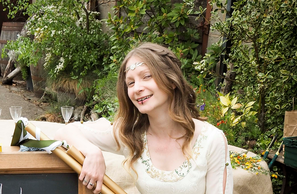
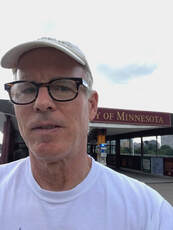
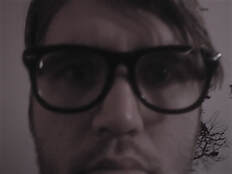
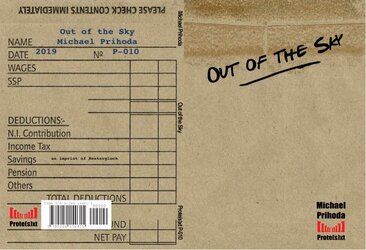
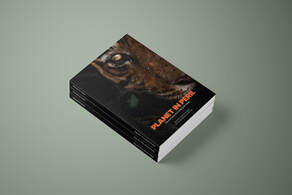
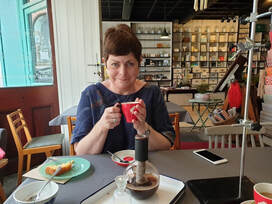
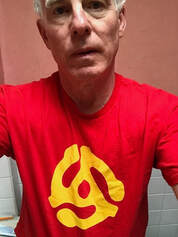
 RSS Feed
RSS Feed
